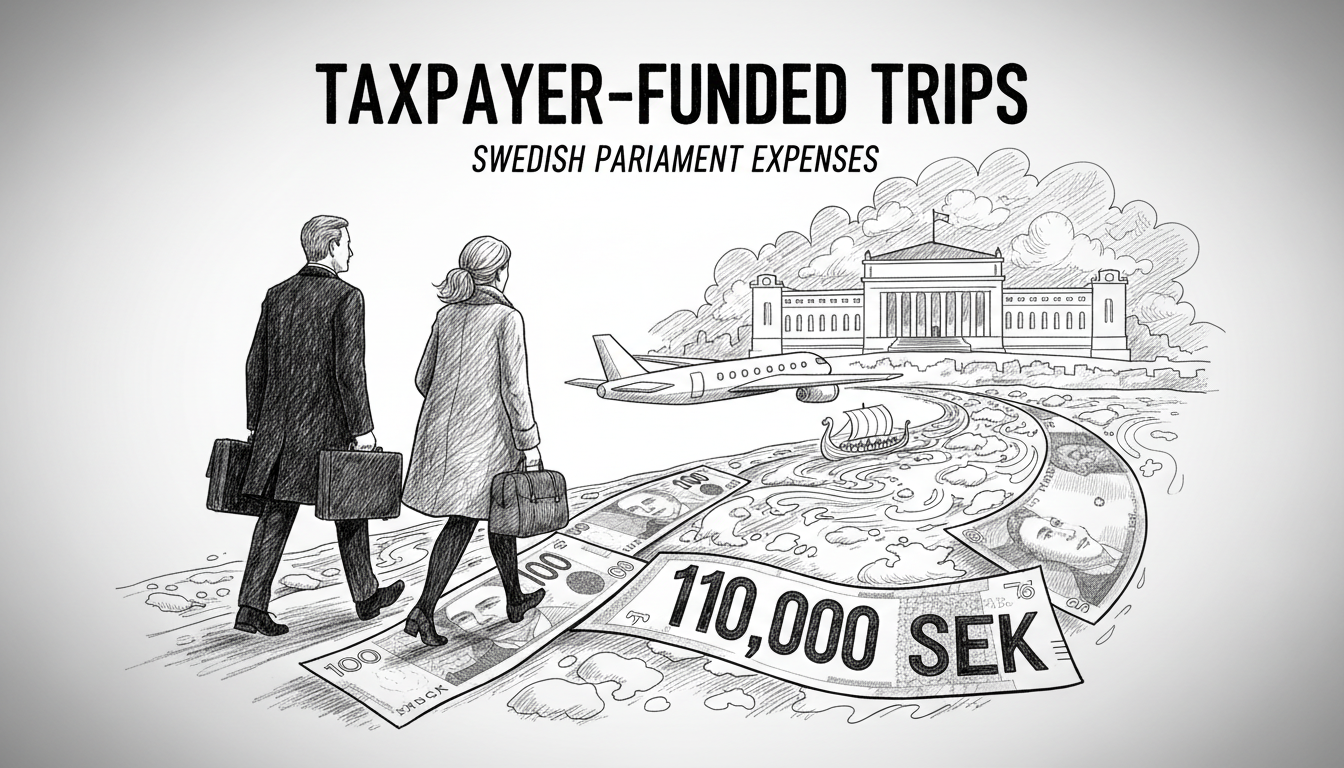Swedish Parliament Speaker Andreas Norlén has brought his wife Helena on multiple official trips funded by taxpayers. Records show she joined 13 international journeys costing taxpayers approximately 110,000 SEK. She also traveled on official government flights four times and accompanied her husband on 19 domestic work trips within Sweden.
Andreas Norlén defended his wife's participation in these official engagements. He stated her presence helped create a more personal approach during meetings with people across the country. He argued this allowed him to be more open and engaging during official representations.
The Parliament Speaker's spouse can join taxpayer-funded representation trips when special reasons exist. The Speaker makes these decisions personally after consulting with deputy speakers. However, documentation reveals several decisions received formal approval after the trips had already occurred.
Political science professor Göran Sundström questioned the frequency of these accompanied trips. He noted these are often expensive journeys that should not be taken lightly. The fundamental question remains where to draw the line regarding public funding for a spouse's travel expenses.
Sundström specifically questioned the domestic trips within Sweden. These journeys don't involve state visits but represent the Parliament Speaker traveling as a representative of the legislative body. The professor suggested these domestic accompanishments are harder to justify than international state visits.
This situation raises important questions about transparency in Swedish political spending. Taxpayers fund these representation activities, creating an expectation of responsible resource use. The Swedish parliamentary system allows for spouse participation under specific circumstances, but the frequency and approval process deserve scrutiny.
Similar debates about official travel expenses have occurred in other Nordic countries. Denmark and Norway have faced comparable discussions about appropriate use of public funds for political representatives' activities. The Nordic model typically emphasizes transparency and accountability in public spending.
International readers should understand that Swedish parliamentary representatives have specific budgets for official representation. These funds cover travel, accommodations, and related expenses for conducting parliamentary business. The system aims to balance effective representation with responsible use of public money.
The current controversy highlights ongoing discussions about appropriate boundaries between personal and official activities in political life. As Parliament Speaker, Norlén holds one of Sweden's highest political offices, making his spending decisions subject to public examination. This scrutiny reflects healthy democratic oversight of how elected officials use taxpayer resources.
What happens next remains uncertain. The revelations may prompt parliamentary reviews of travel policies or increased transparency requirements. Swedish voters and political observers will likely monitor future travel decisions more closely, particularly regarding family member participation in official activities.

